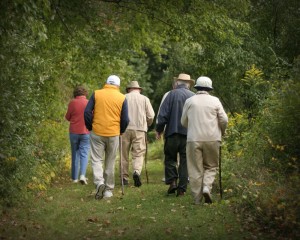Researchers and health advocates have long been encouraging people to make their end-of-life wishes known. While most people say they want to die a natural death at home, few actually put those wishes into writing.
But at least equally important is thinking about how to enjoy quality of life while aging. A new book seeks to help people address these questions. Kaiser Health News interviewed Nortin Hadler, the author of “Rethinking Aging.”
I especially like the book's tagline: "Growing Old and Living Well in an Overtreated Society." Hadler is concerned about the medicalization of aging. “We’re taught and marketed that all changes in appearance and in function in older people are forms of disease that demand treatment," he told Kaiser Health News. "But often, that isn’t true. Much that is termed a disease is a normal aspect of this time of life and needs to be viewed as such.”
The Kaiser Health News interview goes on:
Q: You talk a lot about the importance of older people making informed medical decisions.
A: For the first time in the history of medicine, we have a tremendous amount of information about efficacy: what makes sense to do medically and what doesn’t.
What I want to teach people is that it's perfectly appropriate for patients to ask their doctors, "How certain are you that what you are offering me will produce meaningful benefits? What does the evidence show about the possibility of harm?"
Q: Can you suggest some other questions people might ask?
A: People should want to know the likelihood that death will be postponed by doing something. What is the likelihood of the same outcome, or close to the same, if one doesn’t have the treatment? Out of every 100 people, how many are helped by this intervention?
This last point--how many are helped by an intervention--is particularly relevant. The doctor is referring to relative risk. You might hear a drug ad claim that “twice as many people” avoided a heart attack, stroke or some other dire health consequence. But if the likelihood of that dire thing happening to you was only one in 100 to begin with, do you really want to try an intervention and risk the side effects that go along with it?
